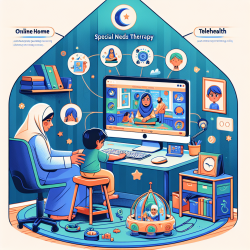Introduction
Indigenous youth face significant mental health challenges, with high rates of mental illness and suicide compared to their non-Indigenous peers. Addressing these challenges requires culturally appropriate, strengths-based strategies that are embedded in the educational systems of Indigenous communities. The research article "Smart Indigenous Youth: The Smart Platform Policy Solution for Systems Integration to Address Indigenous Youth Mental Health" provides valuable insights into implementing such strategies.
The Importance of Cultural Integration
Indigenous Knowledge and cultural connectedness are crucial for improving mental health outcomes among Indigenous youth. The Smart Indigenous Youth initiative emphasizes the integration of culturally appropriate digital health interventions into school curricula. This approach not only addresses mental health issues but also empowers youth by connecting them to their cultural roots.
Smart Indigenous Youth Initiative
The Smart Indigenous Youth initiative is a 5-year community trial in Saskatchewan, Canada, aiming to improve mental health outcomes for Indigenous youth by embedding a culturally appropriate digital health initiative into school curricula. The initiative uses the Smart Platform, a digital epidemiological and citizen science platform, to integrate health, education, and sport policies.
Evidence-Based Strategies for Success
- Citizen Science and Community-Based Participatory Research: The initiative employs a participatory approach, involving Indigenous youth as citizen scientists. This empowers them to contribute to the research process and ensures that interventions are culturally relevant.
- Land-Based Learning: The initiative incorporates land-based activities such as hunting, fishing, and plant identification, which connect youth to their cultural heritage and improve mental health by providing a sense of purpose and identity.
- Digital Tools: The use of smartphones and digital tools facilitates real-time engagement with researchers, allowing for the collection of quantitative and qualitative data on youth behavior and outcomes.
Overcoming Barriers
Implementing such initiatives is not without challenges. Systemic issues like school leadership changes, participant burden, and internet inequity can hinder progress. The Smart Indigenous Youth initiative addresses these barriers through strategic partnerships, community engagement, and innovative use of technology.
Conclusion
Integrating Indigenous Knowledge into school curricula through initiatives like Smart Indigenous Youth can significantly improve mental health outcomes for Indigenous youth. By leveraging digital tools and culturally appropriate strategies, practitioners can create a supportive environment that empowers youth and fosters resilience.
To read the original research paper, please follow this link: Smart Indigenous Youth: The Smart Platform Policy Solution for Systems Integration to Address Indigenous Youth Mental Health.










